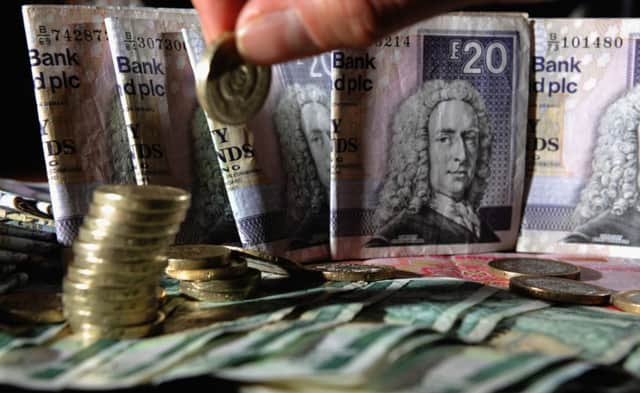Leaders: Plan B for offers no monetary control


His latest remarks on the subject indicate that should no formal currency union be forthcoming, he will consider sterlingisation – the use of the pound by Scotland whether the rest of the UK and its politicians like it or not.
Politically, this indicates a weakening of Mr Salmond’s hitherto solid certainty that the merits of a formal monetary union are such that the UK government, whatever its hue after the next election, is bound to accept this Plan A. Now it seems he is not so sure after all and is floating a sterlingisation Plan B.
Advertisement
Hide AdAdvertisement
Hide AdWhile the intention may be to provide reassurance to voters, the adoption of a currency regime usually associated with developing countries with unstable economies may not sound like something ideal for well-developed Scotland. Against that, it is a response to the demand from business for a Plan B, though whether executives find it attractive is yet to be learned.
The main advantage of sterlingisation is that it ensures that independence will not entail transaction costs of having to change currencies when selling goods and services across, or travelling across, the Border between Scotland and the rest of the UK. Since most of Scotland’s trade is over that Border, this is important.
Providing that the rest of the UK manages its economy in a stable fashion, sterlingisation would also help reduce an independent Scotland’s borrowing costs, though it can’t eliminate the liquidity premium Scotland’s smaller debt issuance would entail.
The disadvantage is that there is no control over monetary policy. Interest rates and the use of quantitative easing remain in the hands of the sterling issuer – the rest of the UK. In respect of both these pros and cons, there is no difference between sterlingisation and a currency union. The big difference between both options and the status quo, of course, is that Scotland loses such influence as it has over monetary policy via the Bank of England’s agent in Scotland and MPs at Westminster.
Proponents of sterlingisation may argue that its virtue over a currency union is that it would free Scotland to use fiscal powers, which are likely to be heavily circumscribed in a currency union, to suit Scottish circumstances and improve the economy.
This freedom, however, may be illusory, as Scotland would be under the constant scrutiny of the markets, checking that fiscal policy was sufficiently prudent to build up the reserves needed for a Scottish currency board to provide emergency liquidity to banks.
And whether Scotland would have the capacity to bail out banks in the event of insolvency is dubious. Sterlingisation may be as tight a straitjacket as a sterling monetary union.
Time to change tack on ‘legal highs’
SO-CALLED legal highs – drugs which alter minds and induce euphoria and yet are legal because their composition or ingredients are not illegal – are a creeping menace. They are not yet the severe blight that illegal drugs are, but their use is travelling in that direction. Time, surely, to reverse that.
Advertisement
Hide AdAdvertisement
Hide AdThe trends which we spotlight today are disturbing. In the last 18 months in Glasgow, 15 school pupils have needed medical attention after taking legal high drugs. Aberdeen reports five such incidents in the last year.
Other city councils do not keep comparable figures, but it seems clear from hospital admission statistics that the trend is remorselessly upward. MSPs have promised action, but the means to do so has proven elusive.
The problem is that as soon as a legal high drug is identified and banned, another replaces it. Defining a drug as illegal involves identifying all the ingredients, so simply changing them allows the drug peddlers to escape the law. As the list of illegal drug grows, so does the list of those which damage and destroy lives but which are ostensibly legal.
Why not reverse the burden of proof? Why not declare that all drugs and chemical concoctions sold to the public are illegal unless proven otherwise?
Then it would be up to those who make an evil living by selling life-corrupting substances to Scotland’s young people that their drugs have no harmful effects.
Scotland boasts of having some of the finest legal minds in the world. It surely cannot be beyond their imagination to come up with some legal formulation which ends this failing game of catch-up and nips this dreadful trade in the bud.